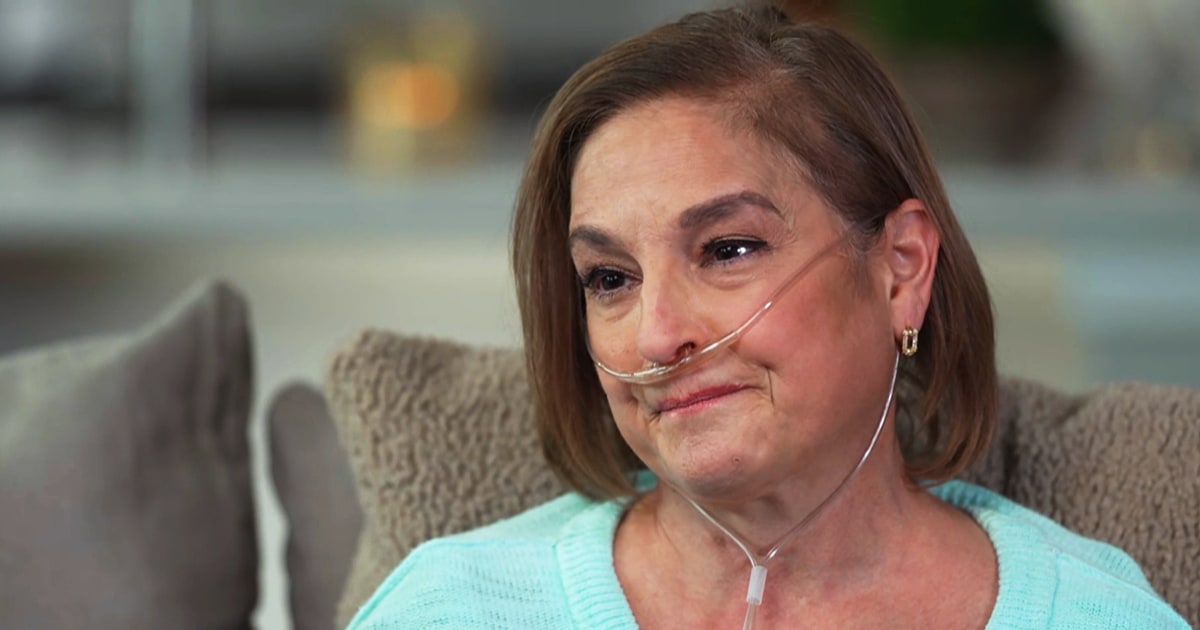
Olympic gold medal gymnast Mary Lou Retton faced “death in the eyes” while in intensive care, she said in her first interview since a life-threatening bout of pneumonia this past fall.
In an interview with Hoda Kotb of NBC’s “TODAY” show from Retton’s home in Boerne, Texas, the 55-year-old icon said she’s grateful for every day of life even if there are still so many unanswered questions about her medical condition.
“I mean when you face death in the eyes, I have so much to look forward to,” Retton said in the interview that aired Monday.
She added: “I’m a fighter and I’m not going to give up. I’m not going to give up. I have no idea what the future holds for me. I don’t know if I’m going to have lasting issues with my lungs. They don’t know. I wish I had answers. But I would never give up. It’s not in me.”
Sitting with her eldest daughter, Shayla Schrepfer, and breathing with the help of a nasal oxygen tube, Retton said she struggles to discuss ongoing health issues.
“I’m very private and to come out and talk about it” is difficult, she said. “Usually my interviews are, ‘Oh, yes — it felt great to win the Olympics,’ you know? This is different. This is serious and this is life and I am so grateful to be here. I am blessed to be here because there is a time when they were about to put me on life support.”
Retton was the first American woman to win an Olympic individual all-around gold when she edged out Romania’s Ecaterina Szabo in the 1984 Summer Games in Los Angeles.
That golden moment cemented her fame as one the country’s most famous gymnasts. She was the first female athlete depicted on a Wheaties box.
The 2018 “Dancing With the Stars” competitor was hospitalized in the intensive care unit and unable to breathe on her own, having contracted a rare form of pneumonia, her family announced in October.
The public wasn’t aware of Retton’s condition until daughter McKenna Lane Kelley launched a crowdfunding page.
Retton’s family sought donations to help cover her hospital bill. She was not insured at the time of her illness, the family said, leaving fans to wonder how one of America’s most famous athletes didn’t have that protection.
Retton said she was in rough financial shape after her 2018 divorce and the Covid-19 pandemic.
“I couldn’t afford it, I couldn’t afford it, I couldn’t afford it,” she said. “But who would even know that this was going to happen to me? That’s the bottom line, I couldn’t afford it.”
The family’s crowdfunding effort has raised more than $459,000 to date.
Retton was released from the hospital in late October and returned to her home near Houston.
“Life goes on, things happen,” said Retton, who now has health insurance. “I’m all set now.”
Pneumonia is a lung infection that can be caused by bacteria, viruses or fungi. It can cause air sacs in the lungs to fill with fluid or pus, leading to a cough, fever, fatigue and difficulty breathing.
Dr. Panagis Galiatsatos, an associate professor of medicine at Johns Hopkins Medicine in Baltimore, said that both viral and bacterial pneumonia “have the same spectrum — from mild cases that can be managed outpatient to severe cases that are leading to respiratory failure.”
According to the American Lung Association, pneumonia leads to more than a million hospitalizations and more than 50,000 deaths each year in the United States. Older adults, young children, people who smoke cigarettes and people with underlying medical conditions such as severe asthma or lung disease are especially vulnerable to infection.
Flu viruses, the coronavirus and respiratory syncytial virus (RSV) are all common causes of viral pneumonia. Common signs include shortness of breath, a high fever and blue lips.
Bacterial pneumonia, meanwhile, is usually caused by one of two types of bacteria. It tends to be more severe than viral pneumonia and is treated with antibiotics.
But pneumonia caused by rare bacteria can be more challenging to treat and require longer hospital stays, Galiatsatos said.
The Centers for Disease Control and Prevention recommends vaccines for certain groups to protect against pneumococcal disease — a range of bacterial infections that includes pneumonia, as well as sinus and ear infections.
One such vaccine has been available to older adults and those with high-risk medical conditions since 1984, and two newer shots were approved in the last few years for other age groups.
Now, pneumococcal vaccines are recommended for all children under age 5 and adults ages 65 and up, as well as anyone with an elevated risk of pneumococcal disease.
But, Galiatsatos said, the vaccine is still not considered an “‘everyone go out and get it’ vaccine.”
“We would really recommend these vaccines for the individuals that are most likely to develop streptococcal pneumonia,” he said.
Galiatsatos added that pneumonia cases seem particularly high this winter.
“This one can be easily put in the top tier of really bad winters with regards to lung infections such as pneumonia,” he said.
Thus far, neither Retton nor her family has disclosed details about which type of pneumonia she contracted, the particular treatments she received or her vaccination status.
However, she said her bout with pneumonia could have killed her if not for a neighbor who noticed that her car door was left open in the driveway.
The former gymnast was on her bedroom floor unable to move when that neighbor, concerned about that open car door, let herself in to check on Retton.
“She came in the house, she knows my code, and saw me and found me and pretty much saved my life,” Retton said.

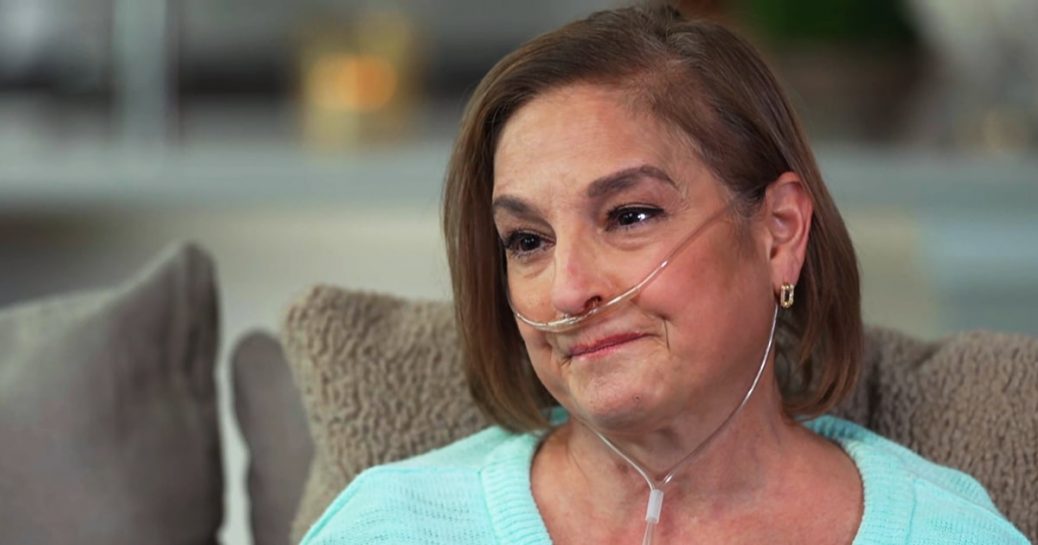
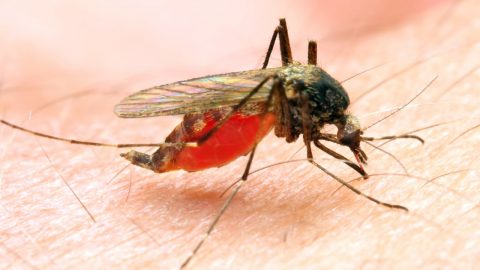
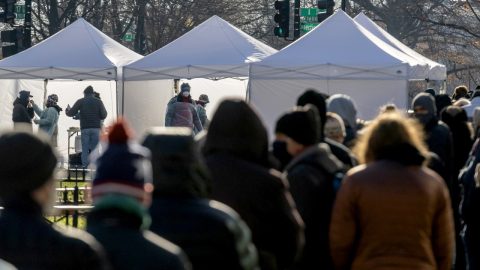
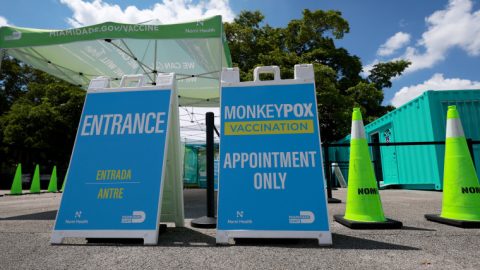


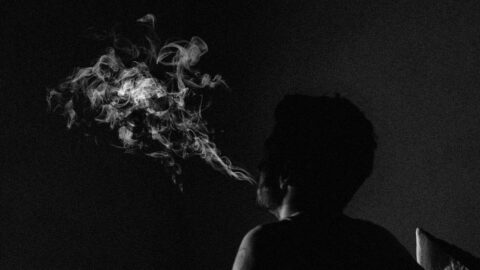
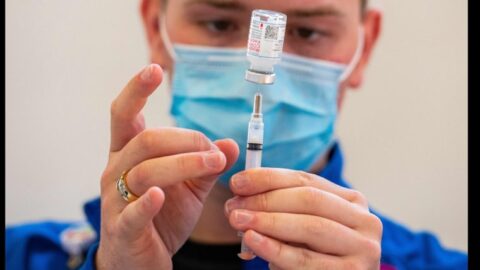
Recent Comments